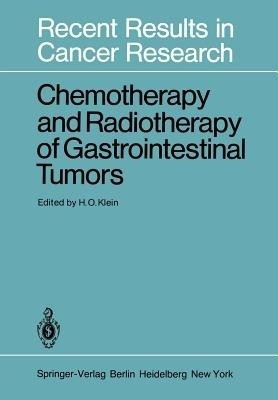Chemotherapy and Radiotherapy of Gastrointestinal Tumors(English, Paperback, unknown)
Quick Overview
Product Price Comparison
Attempts to influence survival of patients with colorectal cancer (CRC) by adjuvant chemotherapy are limited by the variability of survival in different prognostic groups [4] and the paucity of drugs that have shown activity in the advanced disease [10]. Of the few drugs which are active in the advanced disease, only 5-fluorouracil (5-FU) and razoxane <<+/-1,2-bis(3,4-dioxopiperazin-1-yl)propane) are suitable for long-term adjuvant treatment [2, 9]. 5-FU has been widely and intensively studied as adjuvant chemotherapy in CRC [7], but there is no unanimity that it has even the marginal influence on survival that has been claimed [3, 10]. Razoxane has not previously been tested for adjuvant or maintenance treatment in CRC. It has however a number of biological activities which might be thought useful in the treatment of residual or minimal tumours [1] and which might therefore make it useful as an adjuvant. Thus it specifically prevents tumour dissemination and metastases in some tumours and normalizes the neovasculature which the tumours induce [6, 8, 11]. The drug is not cytotoxic in the usual sense, does not affect non-dividing cells, and only blocks cell division during a brief period of the cell cycle in late G and/or early mitosis [12]. It does so non-selectively and most cells capable of 2 division examined so far have been affected by the drug. Even affected cells however are not destroyed immediately, but may increase in size and become multinucleate [5].


